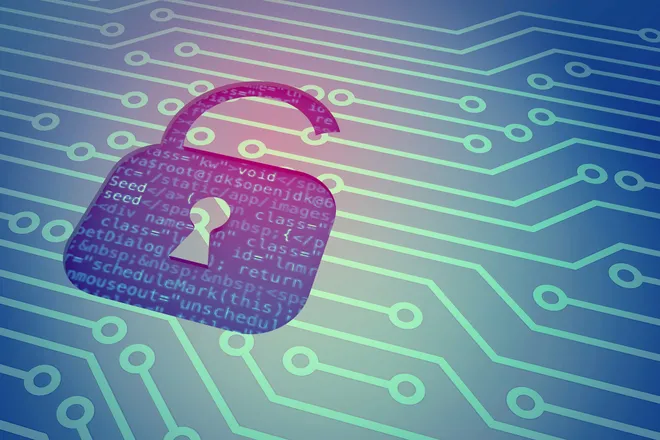In today’s digital landscape, email remains the most widely used form of professional communication for businesses of all sizes and industries. It offers a quick and convenient way to communicate both internally and externally. However, despite its ubiquity, email is fraught with security and privacy concerns that businesses cannot afford to ignore. As companies handle vast amounts of sensitive information through email—whether it’s financial documents, employee data, or customer records—they become prime targets for hackers and malicious actors. Unfortunately, as of 2024, one thing is clear: cybercrime is on the rise.
For this reason, ensuring that your business’s email communications are secure and private is no longer optional—it is imperative. A key component in securing email is using end-to-end encryption (E2E). E2E encrypted email offers numerous benefits, from protecting sensitive data to preventing major corporations from scanning your emails. This article will explore why businesses need to adopt end-to-end encrypted email in 2024 and the critical advantages it offers.
Why Your Business Needs End-to-End Encrypted Email
1. Avoid Becoming a Victim of a Data Breach
Without end-to-end encryption, your email inbox is accessible to your email provider, making it far less secure and not private. Given that companies routinely share confidential matters, such as financial reports, employee information, or customer data, ensuring that such communications don’t fall into the wrong hands should be a top priority.
By using truly secure and private communications through end-to-end encryption, businesses significantly reduce the risk of exposing data in a breach. Companies should also consider using an email service provider that offers zero-knowledge architecture and encrypts as much data as possible. Additional security measures, such as two-factor authentication (2FA), further minimize the risk of sensitive data or employee login credentials being leaked.
2. Keep Confidential Communications Truly Private
Popular email providers such as Gmail or Outlook do not offer end-to-end encryption by default. While these providers may encrypt email in transit, the emails remain accessible as plaintext to the provider, meaning they can be read by third parties. If unauthorized individuals can read your emails, you cannot guarantee their privacy, which increases the likelihood that they could fall into the wrong hands.
This is where end-to-end encryption comes into play.
When you use end-to-end encryption, only the sender and the recipient—who hold the decryption keys—can decrypt and access the email content. Choosing a provider like Tuta Mail, which encrypts more data end-to-end than any other email service, ensures that your business communications remain genuinely private and confidential. Tuta also stores encrypted data on servers located in Germany, ensuring that your data remains secure.
3. Ensure the Security of Client Data
For businesses in industries that handle client data and sensitive information, such as medical histories or banking documents, it is mandatory to ensure that this data is stored and transmitted securely. Without end-to-end encryption, companies cannot guarantee the highest level of data security and privacy for their clients.
4. Regulatory Compliance: GDPR and HIPAA
Regulatory frameworks like the General Data Protection Regulation (GDPR) and the Health Insurance Portability and Accountability Act (HIPAA) require companies to protect user data and privacy. Depending on a business’s location and industry, companies are required to comply with specific regulations that dictate how personal data should be handled, transmitted, and stored.
For businesses operating in Europe, the GDPR establishes strict security and privacy standards that companies must adhere to when dealing with user data. In the United States, HIPAA ensures that medical data remains secure and private. These regulations often mandate the use of encryption protocols to protect sensitive data.
5. Enhance Your Company’s Image and Reputation
It’s no secret that businesses face high risks of being targeted by cyberattacks. One way to reduce the likelihood of falling victim to a data breach or hack is by adopting a robust email solution that uses the highest security and privacy standards.
While the initial investment in migrating to a privacy-focused, end-to-end encrypted email provider may seem unnecessary, it is a crucial step in protecting your company’s image and reputation. Additionally, using an email provider known for its encryption and privacy builds a positive brand image and fosters trust with clients, especially when sensitive information is exchanged via email.
6. Minimize Data Collection
Whether for professional or personal use, when it comes to email or any other online service, it’s important to remember that popular tech giants like Google generate their profits from advertising. Essentially, they track your online behavior, collect extensive user data, and sell it to third parties, which then target you with advertisements.
No business wants its private accounts to be snooped on or to have any data collected. By opting for an end-to-end encrypted email provider, much less data can be tracked or collected.
7. Reduce the Risk of Human Error
As a business, it’s essential to raise awareness among employees about the cybersecurity risks that could potentially disrupt operations, harm the company’s reputation, or erode customer trust. Unfortunately, human error will always be a risk that businesses must consider—especially when phishing emails can be so convincing and hard to detect.
One way to reduce the risk of human error causing problems is by choosing an end-to-end encrypted email provider. With E2E encryption, any sensitive information contained in emails is better protected, even if a phishing attack tricks an employee into opening a malicious email.
Affordable Business Email Encryption
There’s no denying that businesses, regardless of size, need to use end-to-end encryption for various reasons. While well-known providers offer E2E encryption, it’s not always the default option. For example, setting up end-to-end encryption with Outlook requires several technical steps and time.
